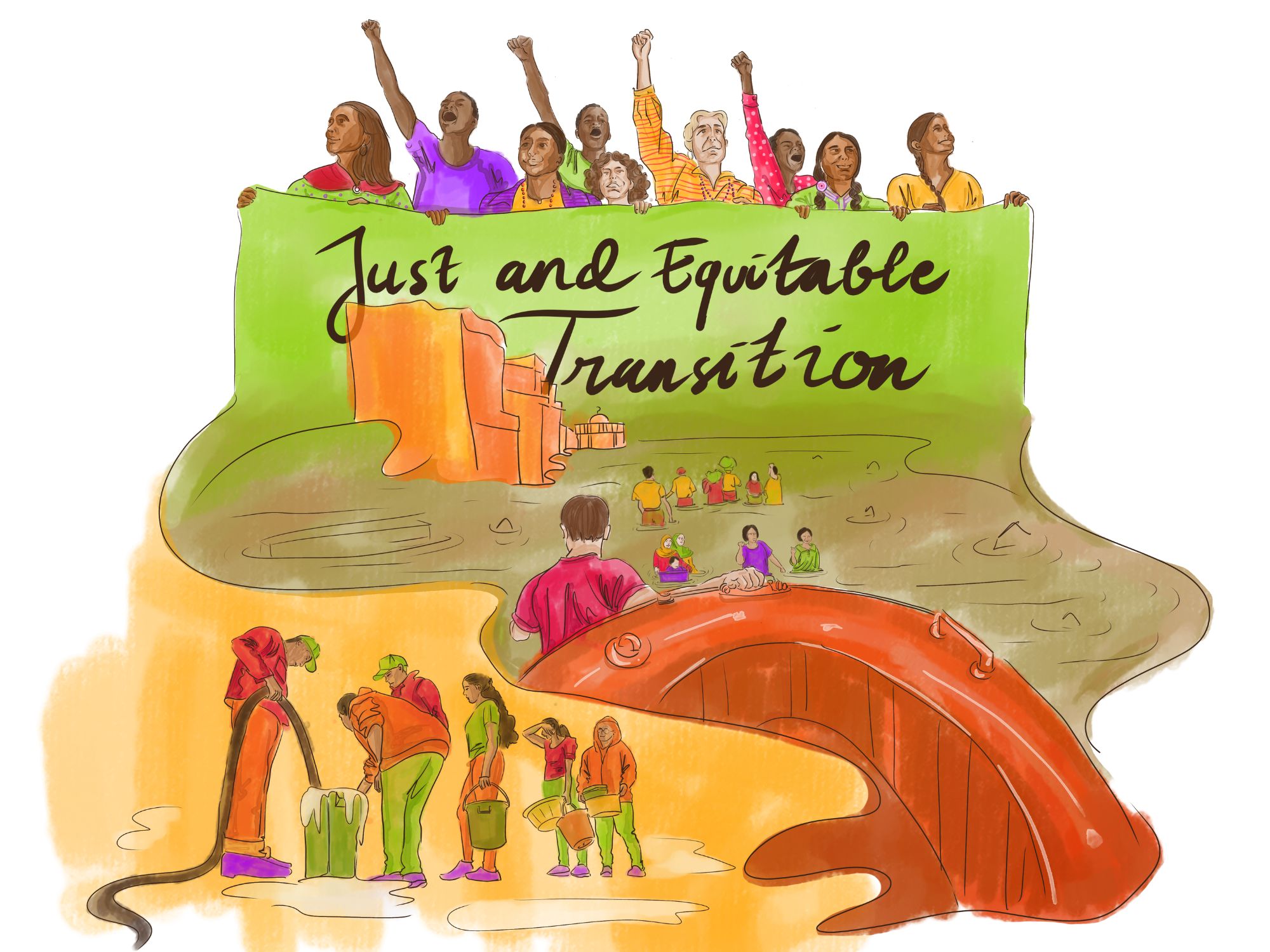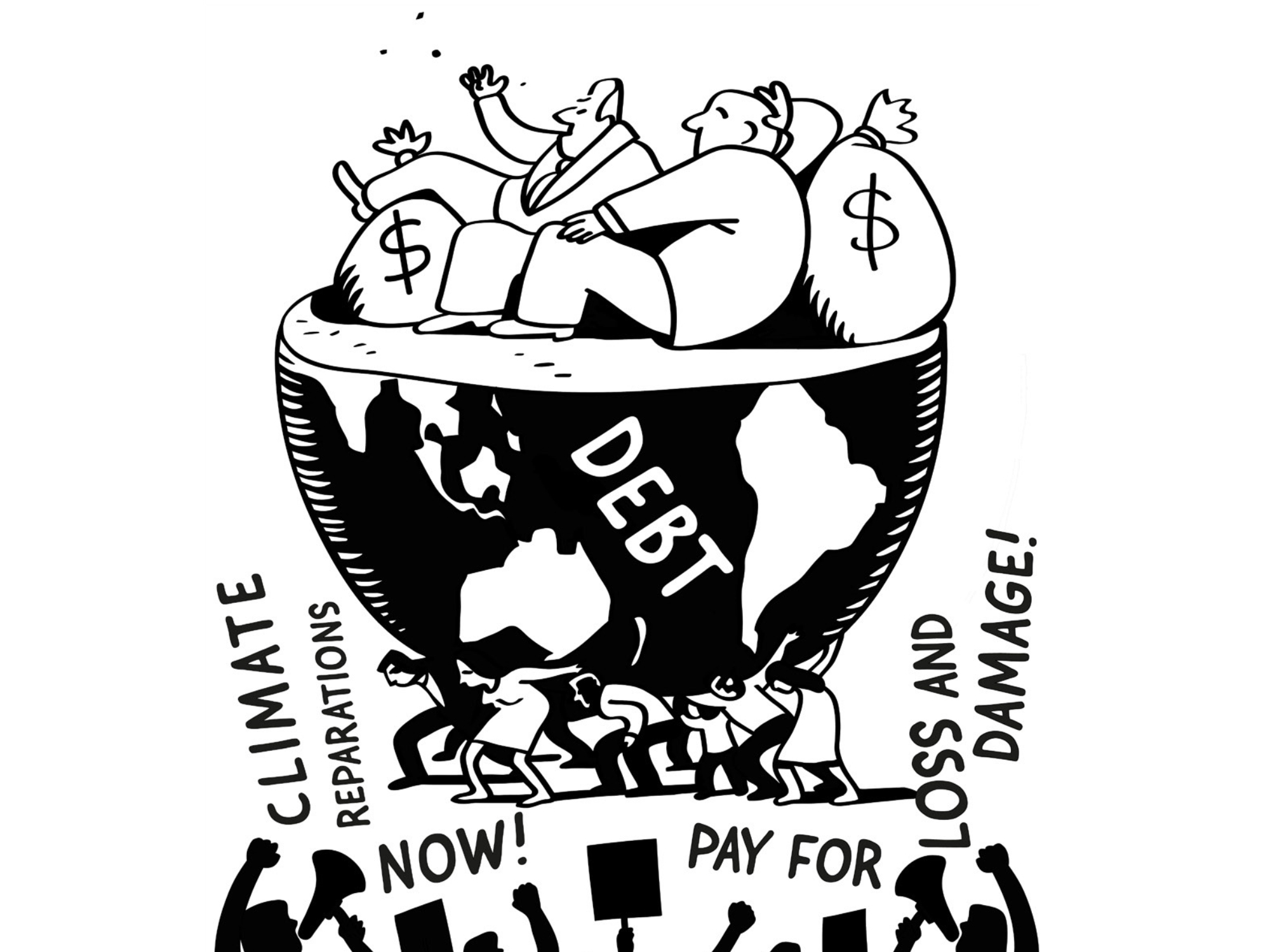For far too long, major polluters have driven the destruction of our planet while manipulating the global response to the climate crisis. Instead of halting the damage they have caused, they have turned climate collapse into an opportunity for profit—imposing false solutions that deepen colonialism, racism, and patriarchy.
More than 60 ESCR-Net members from around the globe recently gathered at a meeting convened by the Environment and ESCR Working Group in collaboration with the Corporate Accountability Working Group. This gathering was not only a moment of collective analysis and resistance, but also a key step in advancing our shared agenda towards COP30 in Belém, Brazil, where communities on the frontlines of the climate crisis will bring forward demands and peoples-led solutions rooted in justice and self-determination.
Human rights defenders, Indigenous leaders, feminist activists, peasant communities, grassroots women’s organizations, youth movements, and anti-extractivist collectives shared experiences of resistance against so-called “climate solutions” imposed by corporations and governments. From diverse regions, ESCR-Net members approached the conversation with feminist, decolonial, and climate justice perspectives.
What We Resist
Members underlined that corporate-driven “climate solutions” are in fact strategies of exploitation that displace communities, criminalize defenders, and divert resources away from climate justice. Among them:
- The “green transition” as a façade for new extractivism. The rush for so-called critical minerals and other resources is devastating ecosystems and frontline communities.
- Corporate capture. Polluters buy off decision-makers, manipulate media, and hijack international negotiations to secure profits.
- Militarism. One of the world’s most polluting industries, absent from climate commitments, diverting resources away from health, education, and real, community-led solutions.
- Carbon markets and “net zero” promises. Mechanisms that allow wealthy countries to keep polluting while burdening Global South communities.
- Geoengineering and carbon removal. Dangerous, unproven techno-fixes that deepen colonial violence and delay real action.
- Conservation as dispossession. “Nature-based solutions” that result in land and ocean grabs, displacing Indigenous Peoples and coastal communities.
These false solutions aim to silence resistance, erase community-led alternatives, and preserve the exploitative systems that fuel the climate crisis.
What We Affirm: Real Solutions
In the face of false exits, frontline communities remind us that the real solutions have always been with us—in ancestral practices, in the defense of land and water, in collective organizing.
Peoples-led, rights-based solutions are grounded in key principles:
- Resistance and solidarity. Movements that connect across borders and struggles.
- Repair and restoration. Community systems that restore biodiversity, ensure food and energy sovereignty, and protect Indigenous seeds.
- Intergenerational justice. Demanding drastic real emissions cuts—not “net zero” distractions—to protect present and future generations.
- Defending defenders. Protecting environmental defenders and communities criminalized for resisting exploitation.
- Decolonial and feminist justice. Dismantling colonialism, capitalism, and patriarchy, while centering women and gender-diverse people as leaders of resistance and care.
- Human rights over profit. Land, water, food, and a healthy environment are non-negotiable rights.
- Reparations and system change. Debt cancellation, equitable climate finance, and redistribution of power and wealth.
Reclaiming “Yes”
Resistance is not only about saying NO to exploitation: it is about reclaiming the YES to justice, dignity, and life-centered solutions. It is about affirming sovereignty, collective care, and self-determination.
The frontline communities not only confront polluters, but also build real alternatives every day that sustain and protect life in all its diversity.
The fight for climate justice is, and will always be, a fight for human rights.
Our Agenda for the Amazon COP
We call on States, multilateral institutions, and decision-makers to stop protecting corporate interests and listen to those defending life on the frontlines of the climate crisis.
It is time to:
- End corporate capture of climate policy and ensure transparency in decision-making.
- Recognize and protect environmental defenders, who face criminalization and violence for resisting extractivism and destruction.
- Channel climate finance and resources directly to communities implementing real solutions.
- Demand drastic emissions cuts, not “net zero” schemes or false solutions that prolong the crisis.
- Guarantee justice and reparations for communities historically harmed by colonialism, environmental racism, and dispossession.
These demands will not remain on paper. They are part of the collective agenda of ESCR-Net for COP30 in Belém, at the heart of the Amazon, where we will bring the voices of communities on the frontlines of the climate crisis and center proposals of justice, reparation, and peoples’ sovereignty.
The real solutions already exist: they are rooted in solidarity, self-determination, and collective care. What is lacking is the political will to recognize, protect, and support them.


